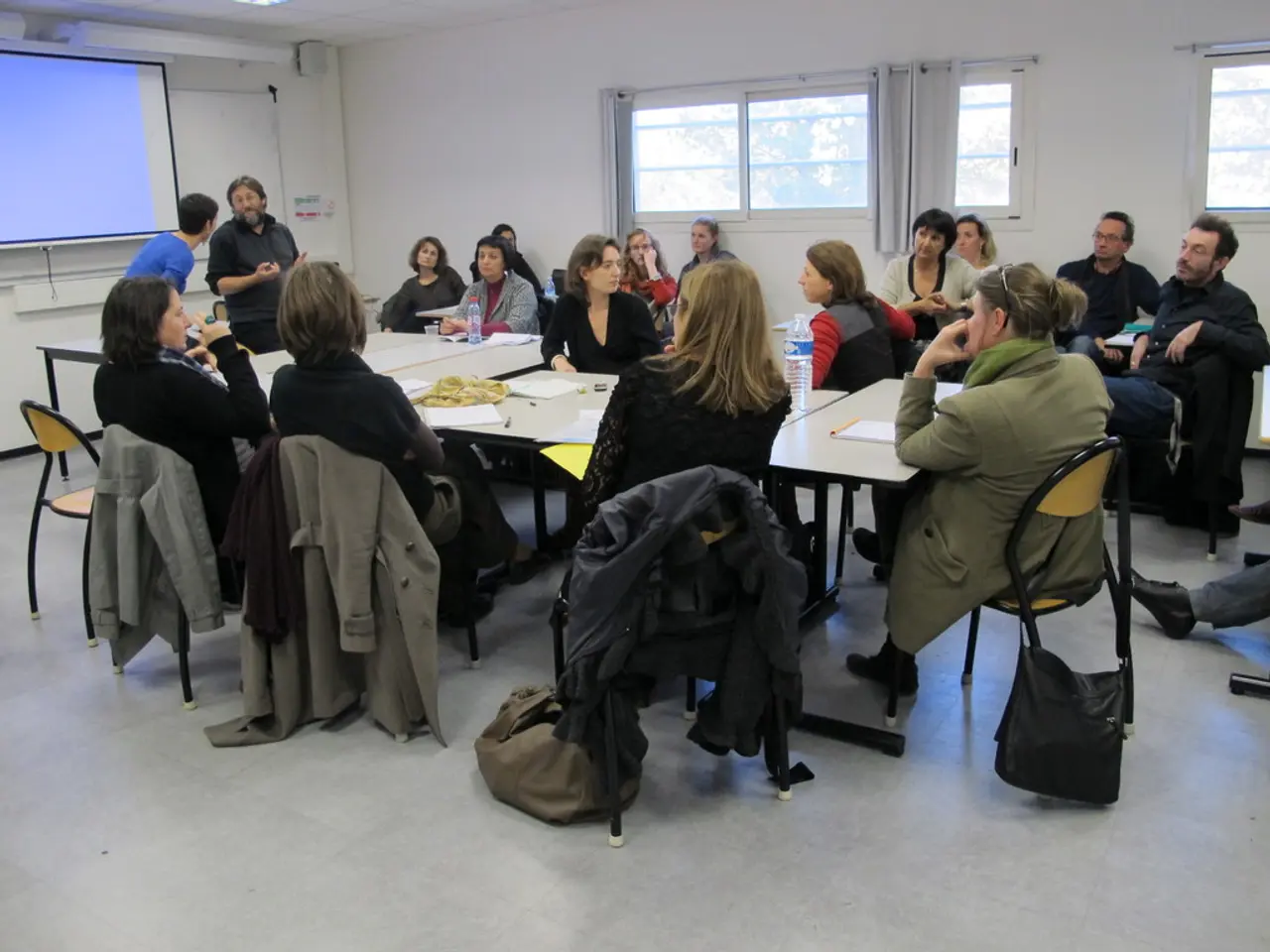Navigating Intense Interpersonal Connections: Strategies for Managing Enmeshed Relationships
Enmeshed relationships, characterized by blurred boundaries and emotional over-involvement, can have a significant impact on mental health. These relationships, which can occur in romantic, friendly, and family contexts, often lead to dependency, guilt, and difficulty setting boundaries.
Identifying Enmeshed Relationships
Enmeshed relationships are marked by several signs. One of the most prominent is the blurring of personal boundaries, making it difficult to distinguish one’s feelings and needs from others. This can lead to excessive emotional caretaking or responsibility for another’s emotions, a phenomenon known as parentification.
Other signs include control disguised as closeness, with family members interfering in each other’s decisions and relationships, and the suppression of conflict. Enmeshed relationships can also lead to difficulty with boundaries, where one feels guilty when trying to set limits, overextends oneself, or tolerates intrusive behavior.
In romantic relationships, enmeshment can manifest as prioritizing family needs over partners or developing unhealthy dependence. Intimacy problems, such as fear of engulfment (losing oneself), fear of abandonment, distrust, and emotional distance, are also common.
Impact on Mental Health
The impact of enmeshed relationships on mental health can be profound. Individuals may experience anxiety, guilt, and resentment due to difficulty asserting boundaries and emotional over-involvement. Emotional enmeshment can also lead to intimacy disorders, marked by fear of closeness or commitment.
Enmeshment can challenge an individual's sense of self, leading to a loss of individual identity. Acting as an emotional caretaker can lead to burnout and suppressed personal needs.
Strategies for Creating Healthy Space and Coping
- Set Compassionate Boundaries: Clearly communicate what you can and cannot do, understanding that boundaries protect your emotional well-being and autonomy.
- Work Through Guilt: Recognize that family or others rejecting your boundaries does not mean you are wrong, and prioritize your happiness and needs without needing permission.
- Increase Self-Awareness: Reflect on your role in relationships and distinguish your emotions and responsibilities from others’.
- Seek Support: Therapy or support groups can help unpack patterns like parentification and learn healthy family dynamics.
- Practice Emotional Separation: Develop and maintain individuality within relationships while staying connected, avoiding over-involvement.
- Improve Communication: Encourage honest conversations and express feelings and limits without fear of rejection or conflict.
Applying these steps gradually can reduce enmeshment’s impact on mental health and foster healthier, balanced relationships. It's important to remember that a relationship should allow individuals to grow and feel whole, and it's okay to take a step back if things aren't working.
Online couples therapy or individual therapy can help reconnect with oneself while learning how to build healthier, more balanced relationships. Relationship counseling or individual therapy can offer a non-judgmental place to explore enmeshed dynamics and teach how to set a new precedent.
In conclusion, understanding enmeshed relationships and their impact on mental health is crucial for maintaining healthy, balanced relationships. By identifying signs of enmeshment, setting compassionate boundaries, increasing self-awareness, seeking support, practicing emotional separation, and improving communication, individuals can work towards creating healthier, more fulfilling relationships.
- A licensed therapist can provide strategies and guidance in couples therapy to help an individual identify signs of enmeshment in their relationships, set boundaries, and work towards creating healthier, more fulfilling relationships.
- Anxiety and guilt are common experiences for those in enmeshed relationships due to difficulty asserting boundaries and emotional over-involvement, a problem addressed in mental health and health-and-wellness discussions.
- Enmeshment can challenge an individual's sense of self and lead to a loss of individual identity, a problem often associated with lifestyle and personal growth discussions in education-and-self-development and mental-health forums.
- Developing and maintaining individuality within relationships while staying connected, without over-involvement, is an important strategy for coping with enmeshment, providing insights for those seeking advice on relationships and personal development.
- In the quest for personal growth and mental health improvement, one may seek support from online resources, such as therapy or support groups, focusing on areas like relationships, mental health, science, and health-and-wellness for educational and self-development purposes.




